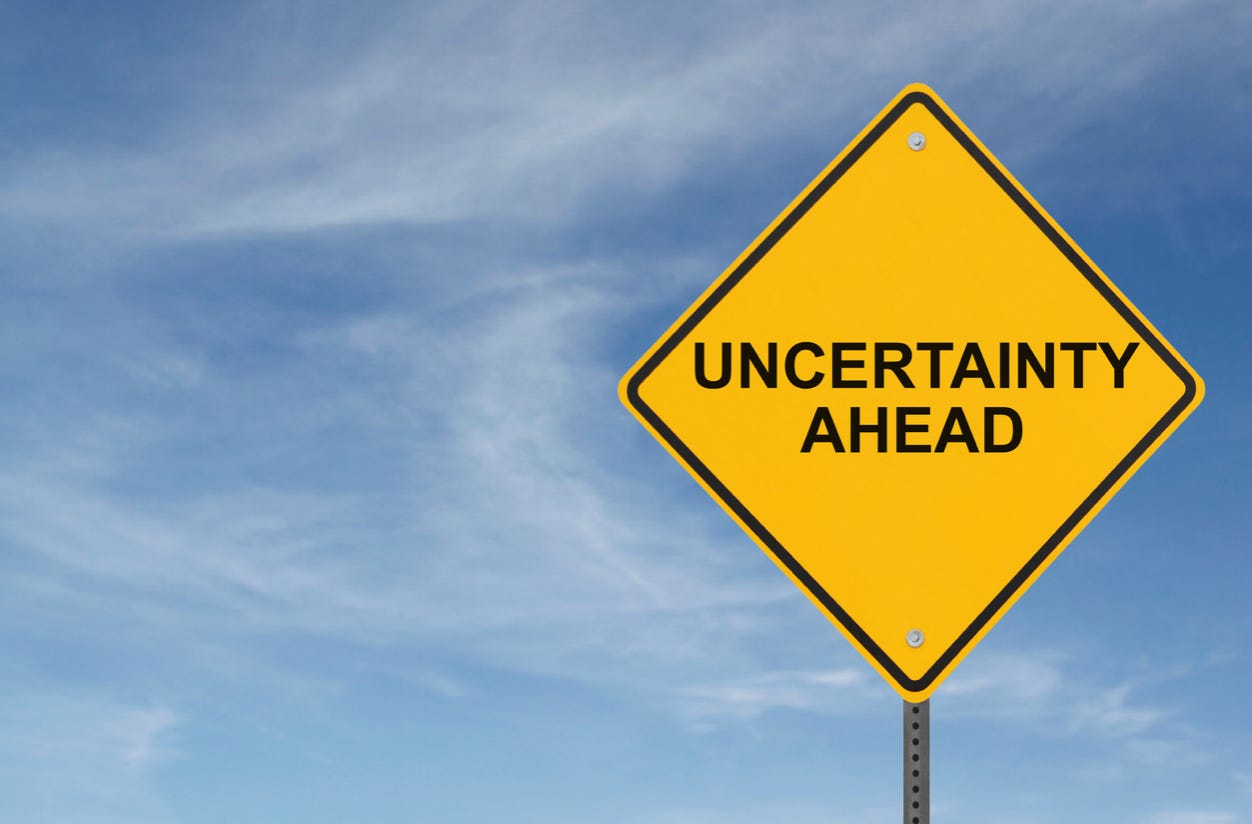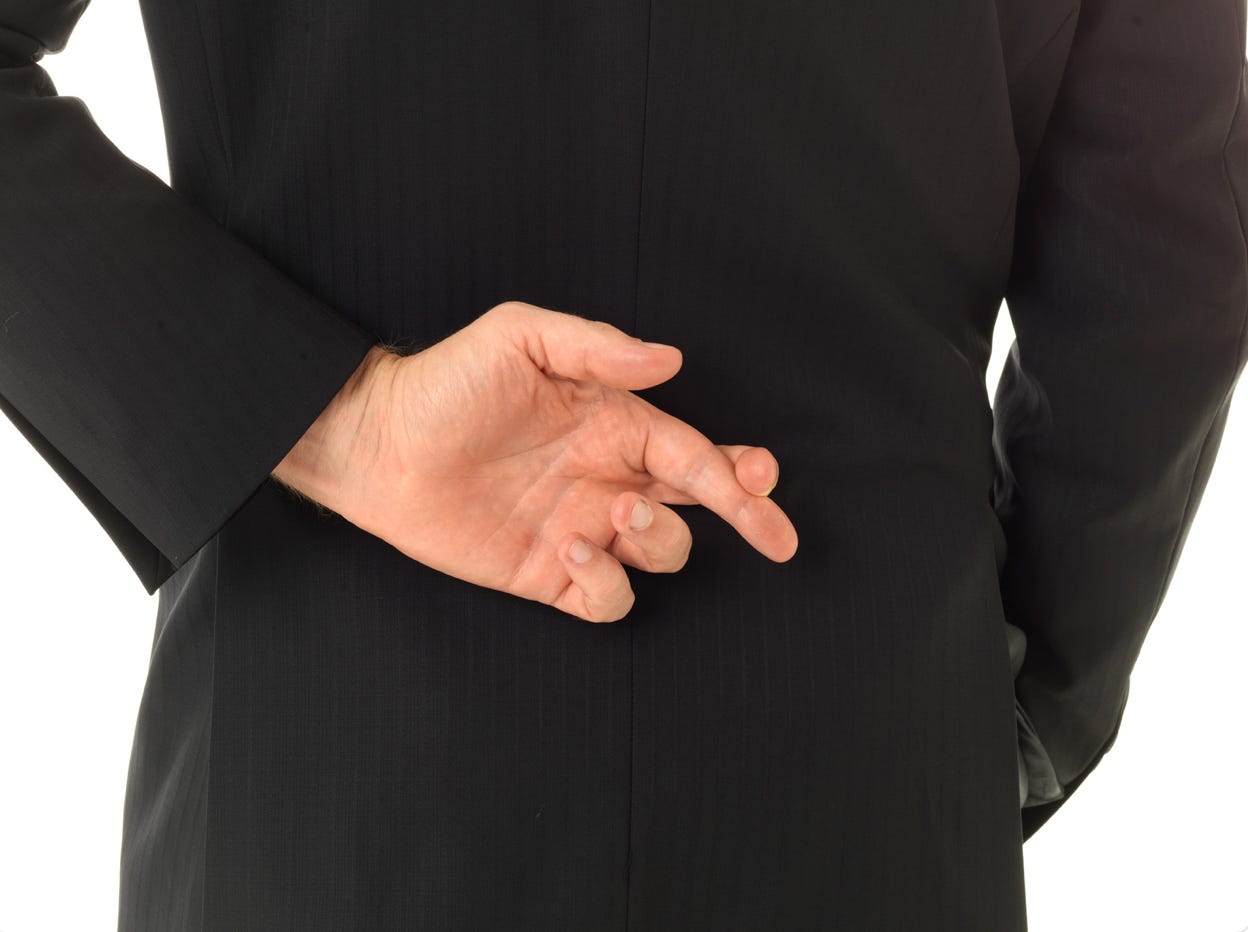The Psychology of Uncertainty
Which is worse? Thinking something bad may happen? Or that it is certain?
As I mentioned before, 2022 is feeling very 1970s to me. And that reminded me of a chapter in Future Babble (a book I published in 2010) about the 1970s and the psychological power of uncertainty, which I decided to publish here in sections.
In this post, and this one, I laid out the 1970s in all their polyester glory. In the following post, I look at the psychology of uncertainty.
It is a timeless subject. But also very timely, I’m sure you’ll agree.
The Agony of Not Knowing
We want control. We need control. And bad things happen when we don’t have it.
In an unsettling study, elderly residents of a nursing home were placed in rooms where everything was handled by others, right down to the arrangement of the furniture and the selection and care of a houseplant. With no decisions to make, their environment was pleasant but completely out of their control. Other residents of the home were given the same room and treatment, but they were asked to decide how the furniture would be arranged and they were asked to select and care for a plant. A year and a half later, 30 per cent of the residents without control had died, compared to 15 per cent of those with control. Plenty of other research points to the same conclusion: If we do not perceive ourselves to have at least a little control of our surroundings, we suffer stress, disease, and early death.
Control is such a fundamental psychological need that doing without it can even be torture. I mean that quite literally. I spent the better part of 2003 investigating torture in Egypt, Turkey, Uzbekistan, and elsewhere, and the essential point to emerge was that torture is not about physical pain. That is merely one of the torturer’s tools. At its core, torture is a process of psychological destruction. And that process almost always begins with the torturer explicitly telling the victim he is powerless. “I decide when you eat and sleep. I decide when you suffer, how you suffer, if it will end. I decide if you live or die.” That is the torturer’s mantra. Knowing what will happen in the future is a form of control, even if we cannot change what will happen. Torturers know this. It’s why they avoid routines by constantly varying the time of interrogation sessions, what is done to prisoners, and how long it lasts. Often they will do things that make no sense – shout nonsense, make impossible demands – to further bewilder the prisoner. When all is uncertain, nothing is predictable, and that is terrifying.
In an experiment disturbingly similar to torture, researchers in the Netherlands asked volunteers to experience a series of twenty electrical shocks while their bodies were monitored for sweating, rapid breathing, and elevated heart rates – physiological evidence of fear. Some of the participants were given twenty strong shocks. Others were given seventeen mild shocks interspersed randomly with three strong shocks. All participants were told in advance what sort of shocks they would get, which meant that what would happen was predictable for those receiving the twenty strong shocks but unpredictable for those receiving mostly mild shocks. The result: People who experienced the mild-but-unpredictable shocks experienced much more fear than those who got the strong-but-predictable shocks.
Uncertainty is potent. And experienced interrogators know it. “The threat of coercion usually weakens or destroys resistance more effectively than coercion itself,” noted a CIA manual on interrogation obtained in 1997 by reporters at the Baltimore Sun. “The threat to inflict pain, for example, can trigger fears more damaging than the immediate sensation of pain. . . . Sustained long enough, a strong feeling of anything vague or unknown induces regression, whereas the materialization of the fear, the infliction of some sort of punishment, is likely to come as a relief.”
Given how devastating uncertainty and lack of control can be, it’s not a surprise that we have some powerful psychological defences against both. The “illusion of control” discussed earlier is a big one. Another is superstition. When the anthropologist Bronislaw Malinowski studied the daily lives of native people living on the Trobriand Islands of the South Pacific, he noticed that while the islanders used magic rituals abundantly, they reserved them only for some activities. When they went after the abundant fish in a sheltered lagoon, for example, they didn’t use magic, but when they fished in the open sea, they did. That might have suggested it was the presence of danger that settled whether they used magic or not, but that explanation didn’t fit other observations. The islanders used magic to keep insects from devouring their crops, for example, but they didn’t in gardening generally. Malinowski realized that what made the difference was control. When the islanders felt their own work and skill would determine success or failure, they did not resort to magic; when the outcome involved chance or other factors outside their control, they did.
Expanding on Malinowski’s insight, psychologists have demonstrated that resort to superstition rises and falls in tandem with stress and uncertainty. In a study conducted during the Gulf War, when Iraq was firing missiles at Israel, psychologist Giora Keinan found Israelis living in areas at risk were more likely to indulge in “magical thinking” than those who did not. In a later study, Keinan asked students to answer questions like “How is your health?” and “Has anyone in your immediate family suffered from lung cancer?” Students who were experiencing the stress of an impending examination were more likely to “knock on wood” after mentioning their good fortune than were students who were not under the gun. Researchers have even demonstrated that people who feel they lack control are more likely to see patterns that don’t exist.
These are natural impulses, and they are automatic. Even someone who is fully aware of them, and knows how irrational they are, will feel the itch. “While I appreciate that carrying the same amount of tees in my pocket will not help me play a round [of golf] any better, or the action of always marking my ball on the green with a coin placed ‘heads up’ will not influence the outcome,” noted British psychologist David Lavallee, who specializes in sports psychology, “I will probably continue to resort to such behaviours.” Of course, the little superstitions of weekend golfers are trivial compared to the elaborate rituals professional athletes follow, which is precisely what we would expect to see: As the uncertainty and stress rise, so will the superstitious behaviour. Researchers have even found that among elite professional athletes, superstition rises more prior to matches with higher stakes and more uncertain outcomes.
Keep reading with a 7-day free trial
Subscribe to PastPresentFuture to keep reading this post and get 7 days of free access to the full post archives.





